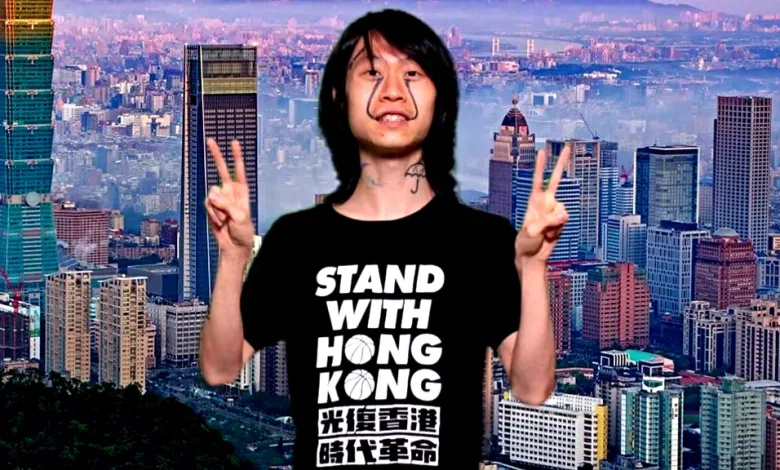Hong Kong Man Sentenced to 14 Months in Jail for ‘Seditious’ T-Shirt

- 303 people arrested under two security laws in Hong Kong
- 176 individuals have been prosecuted.
- 160 convictions recorded.
A 27-year-old man from Hong Kong has been sentenced to 14 months in prison for wearing a T-shirt and mask featuring protest slogans considered “seditious.” This marks a significant case as he is the first individual to be convicted under the city’s stringent new national security law.
Chu Kai-pong received his sentence on Thursday at the West Kowloon Magistrates’ Courts. Earlier in the week, he had pleaded guilty to one count of “doing acts with seditious intention.” Under the new legislation, referred to as Article 23, this offense carries a maximum penalty of 10 years in prison.
The conviction highlights the increasing enforcement of Hong Kong’s national security measures, which have raised concerns among activists and human rights organizations about freedom of expression in the region. Chu’s case has drawn attention as it underscores the risks individuals face for seemingly benign acts of protest.
The T-shirt and mask worn by Chu, which displayed slogans advocating for political reform, were deemed a violation of the law, reflecting the government’s hardline stance against dissent. The ruling has sparked discussions about the implications for civil liberties in Hong Kong, a city that has experienced significant political unrest in recent years.
As the government continues to crack down on dissent under the national security law, many in Hong Kong are closely monitoring the outcomes of similar cases, fearing that such convictions may set a precedent for further limitations on free speech and assembly.
Chu Kai-pong was arrested for wearing a T-shirt emblazoned with the slogan “Liberate Hong Kong, revolution of our times” and a yellow mask that featured the acronym “FDNOL,” which stands for the pro-democracy phrase “five demands, not one less.” His arrest took place on June 12, coinciding with the fifth anniversary of the significant pro-democracy protests in Hong Kong in 2019.
The 2019 protest movement represented the most significant challenge to the Hong Kong government since the city was handed back to China in 1997. This movement eventually diminished due to widespread arrests, the exile of many democracy activists, the impact of the COVID-19 pandemic, and the Chinese government’s implementation of a national security law in 2020.
During the sentencing on Thursday, Chief Magistrate Victor So—who was appointed by the government to handle national security cases—remarked that Chu “took advantage of a symbolic day with the intention to reignite the ideas behind the unrest.” This statement underscores the government’s perspective on the use of protest symbols and slogans.
In January, Chu had already been sentenced to three months in prison for wearing a similar T-shirt at the airport and for possessing materials considered seditious. The judge pointed out that Chu’s subsequent actions demonstrated that the deterrent effect of his earlier sentence had proven inadequate.
Chu’s case highlights the ongoing tensions in Hong Kong, where expressions of dissent are increasingly met with legal repercussions under the national security law. This situation raises significant concerns about the future of free speech and political expression in the region.
The sedition offense was originally established during British colonial rule in Hong Kong, which ended in 1997. However, it was rarely enforced until Hong Kong authorities revived it in 2020 in response to the widespread protests that year.
With the protests effectively suppressed, the Chinese government imposed a national security law on the city in mid-2020 aimed at curbing further dissent. This new law, officially known as the Safeguarding National Security Ordinance or Article 23, came into effect in March.
The revised legislation expands the definition of sedition to include inciting hatred against China’s communist leadership. It also increases the potential jail sentence for sedition to a maximum of 10 years, particularly if the offense is carried out in collusion with an “external force.”
Critics of Article 23, including Western nations such as the United States, argue that this law will further erode freedoms in Hong Kong and suppress dissent. Once regarded as one of the freest territories in China, Hong Kong is now facing heightened scrutiny over its diminishing civil liberties under the new legal framework.
As of this month, a total of 303 individuals have been arrested under the two security laws, with 176 facing prosecution and 160 ultimately convicted.






